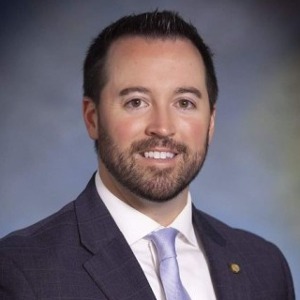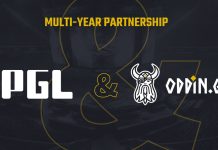The 2024 SBC Summit North America is less than a month away, but the excitement around the event is already starting to build. After a frustrating legislative season, talk about how to better approach lawmakers in 2025 will inevitably be front and center.
West Virginia Delegate Shawn Fluharty will not only be taking part in those conversations but also delivering a keynote at the event. As the President of the National Council of Legislators from Gaming States (NCLGS), Fluharty and his organization are trying to develop a bank of resources, including model legislation, to help streamline and optimize the process. He has been in the trenches and knows what it takes to get a wide range of gaming legislation across the finish line.
In addition to his keynote, Fluharty will be taking part in panels and taking advantage of the networking opportunities SBC Summit North America has to offer. SBC Americas spoke with Fluharty about the event as well as the legislative landscape and the importance of collaboration.

SBC: This year we’ve seen that the debate for online casino expansion has taken on a heightened fervor. Cannibalization and labor concerns are now major topics of conversation. What do you think lawmakers should be considering when looking at iGaming expansion?
SF: Lawmakers should be focusing on cannibalizing the black market. All of those states are currently offering black market iGaming, they’re just not seeing any revenue from it. Regarding cannibalization, current iGaming states didn’t have the cannibalization talking point when considering legislation. Brick-and-mortar casinos continue to run strong in those states. Pennsylvania has opened four new casinos since passing iGaming. At the end of the day, lawmakers have the opportunity to raise new revenue without raising taxes, shrink the black market and provide consumer protections which currently do not exist. Those are sound policy objectives, not just political talking points.
SBC: NCLGS is working on model iGaming legislation. How is that process going and what feedback from this year’s legislative sessions are you putting into the draft?
SF: Since announcing our iGaming Committee, we have received incredible feedback. We have partnered with the U.K. Gaming Commission, as they have the longest tenure in offering an iGaming product and bring years of experience to the table. We will have consumer protection advocates, legislators and those operating in the industry at the table as well. Certainly, most recent legislative sessions will play a role as they offer the most recent evidence of roadblocks to passage. While each state is unique, I believe we can produce a framework that will serve as a tool and catalyst to produce sound policy in states going forward, which is a goal for NCLGS and our members.
SBC: Why is collaboration across legislators and regulators in other states so crucial when it comes to the gaming industry?
SF: Collaboration is the most important issue that deserves more attention when considering legislation. When we were passing iGaming (and sports betting) in West Virginia, we reached out to David Rebuck and New Jersey. We worked with our regulators, West Virginia Lottery, to get legislation across the finish line. Without that collaboration, it doesn’t happen. Lawmakers need to realize that regulators are partners in this process, not adversaries. They should be included in the beginning. Doing so will show the public and your colleagues that you want an operable finished product, which also incentivizes lawmakers to support said legislation.
SBC: Given the debate around iGaming, what are you most excited to discuss both on your panel and at the conference when you get to New Jersey?
SF: I love the debate around iGaming currently. I think I can bring a unique perspective as someone who has lived the legislative process as a lawmaker and continues to do so whether it be as President of NCLGS or as Head of Government Affairs at Play’n GO, I have been involved with iGaming long before it became a hot button issue nationally. I look forward to continuing the conversation and there is no better place to do so than SBC.
SBC: As an attendee, is there any topic or group you are eager to meet at this year’s SBC Summit North America?
SF: While iGaming continues to be a mainstay topic, I am also excited for the sports betting conversation. In particular, the panel regarding the role of the NCAA and universities going forward. I think that is an area for real state collaboration as we continue to implement and modify current sports betting practices in states.













